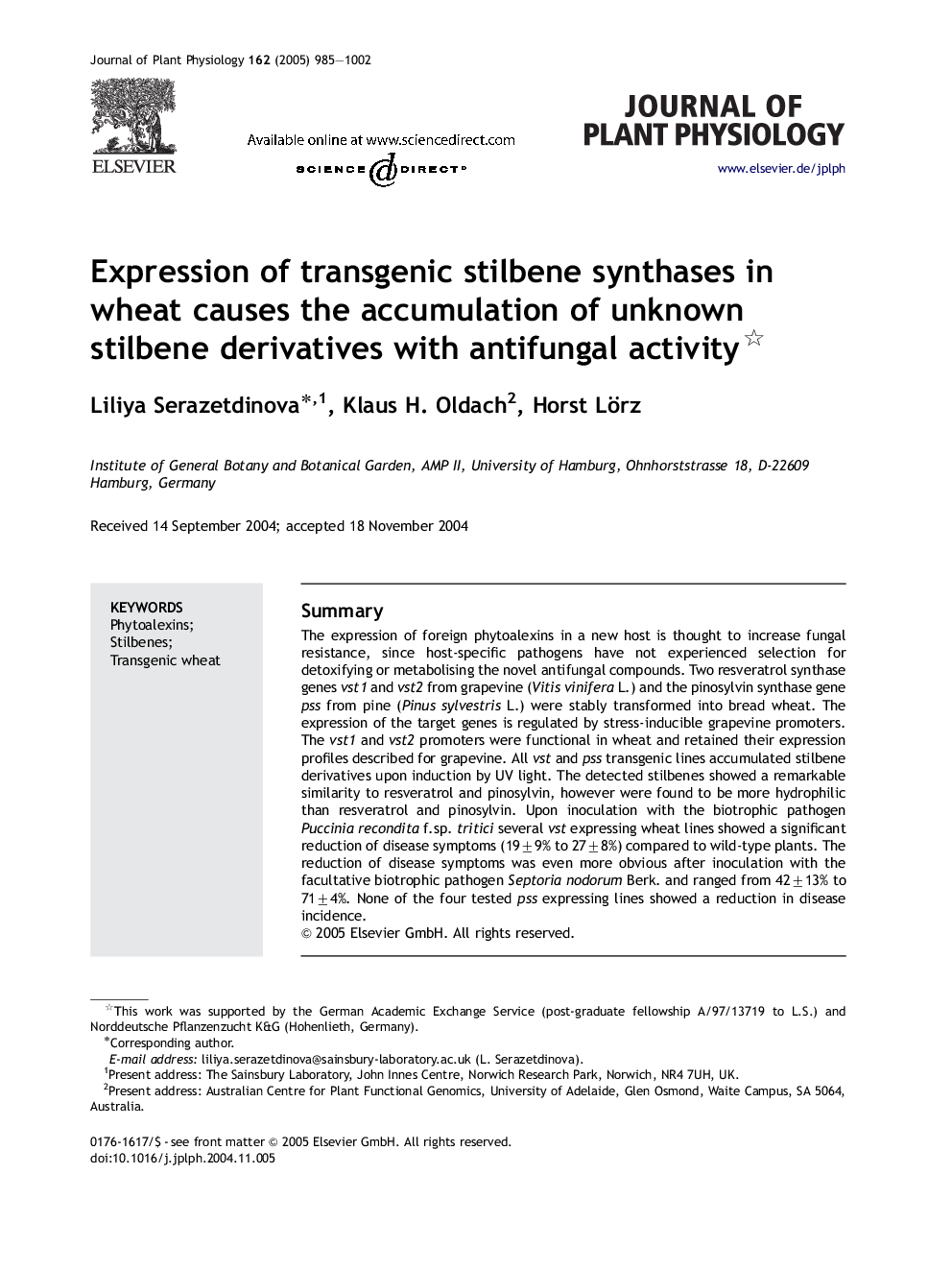| Article ID | Journal | Published Year | Pages | File Type |
|---|---|---|---|---|
| 10877017 | Journal of Plant Physiology | 2005 | 18 Pages |
Abstract
The expression of foreign phytoalexins in a new host is thought to increase fungal resistance, since host-specific pathogens have not experienced selection for detoxifying or metabolising the novel antifungal compounds. Two resveratrol synthase genes vst1 and vst2 from grapevine (Vitis vinifera L.) and the pinosylvin synthase gene pss from pine (Pinus sylvestris L.) were stably transformed into bread wheat. The expression of the target genes is regulated by stress-inducible grapevine promoters. The vst1 and vst2 promoters were functional in wheat and retained their expression profiles described for grapevine. All vst and pss transgenic lines accumulated stilbene derivatives upon induction by UV light. The detected stilbenes showed a remarkable similarity to resveratrol and pinosylvin, however were found to be more hydrophilic than resveratrol and pinosylvin. Upon inoculation with the biotrophic pathogen Puccinia recondita f.sp. tritici several vst expressing wheat lines showed a significant reduction of disease symptoms (19±9% to 27±8%) compared to wild-type plants. The reduction of disease symptoms was even more obvious after inoculation with the facultative biotrophic pathogen Septoria nodorum Berk. and ranged from 42±13% to 71±4%. None of the four tested pss expressing lines showed a reduction in disease incidence.
Related Topics
Life Sciences
Agricultural and Biological Sciences
Agronomy and Crop Science
Authors
Liliya Serazetdinova, Klaus H. Oldach, Horst Lörz,
